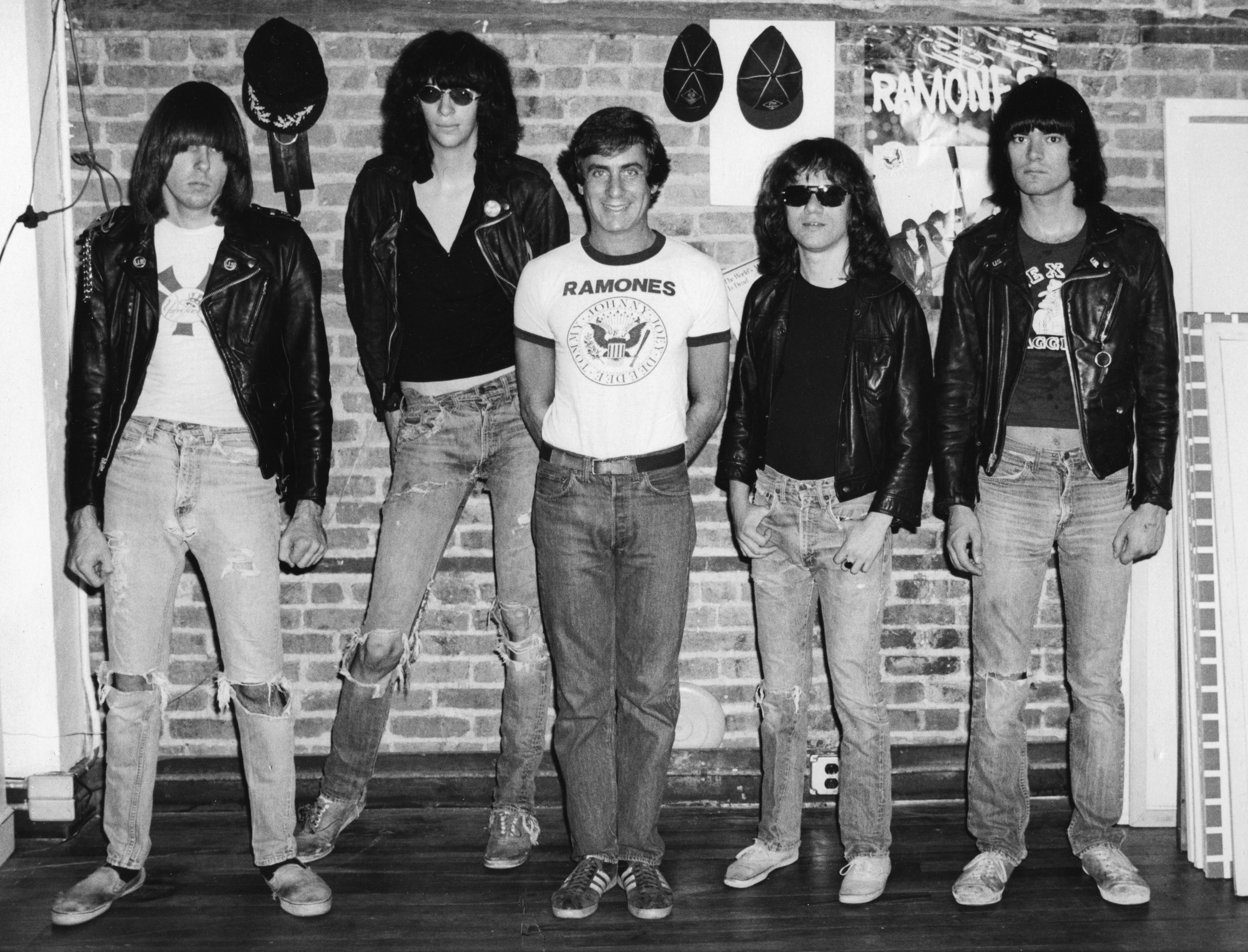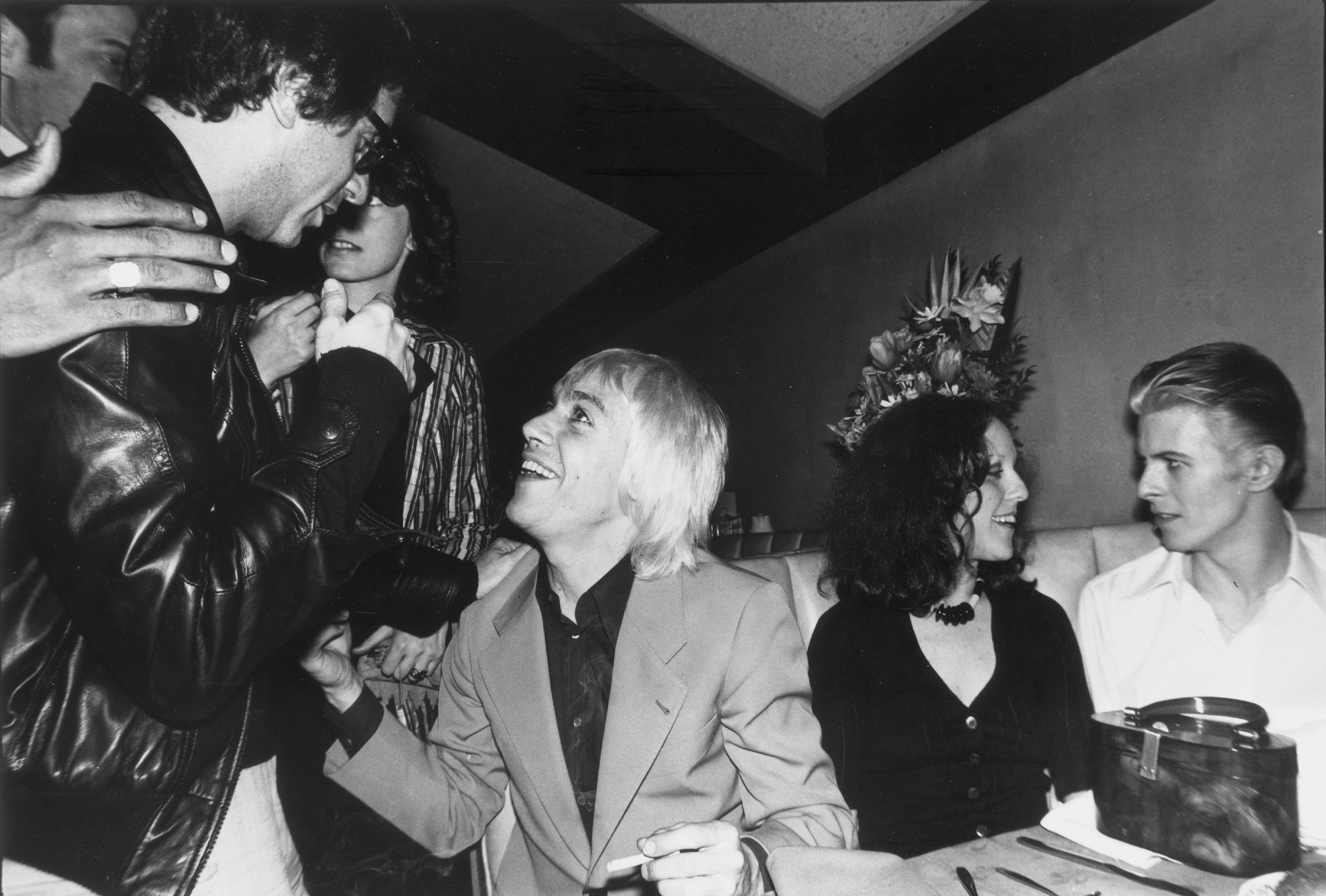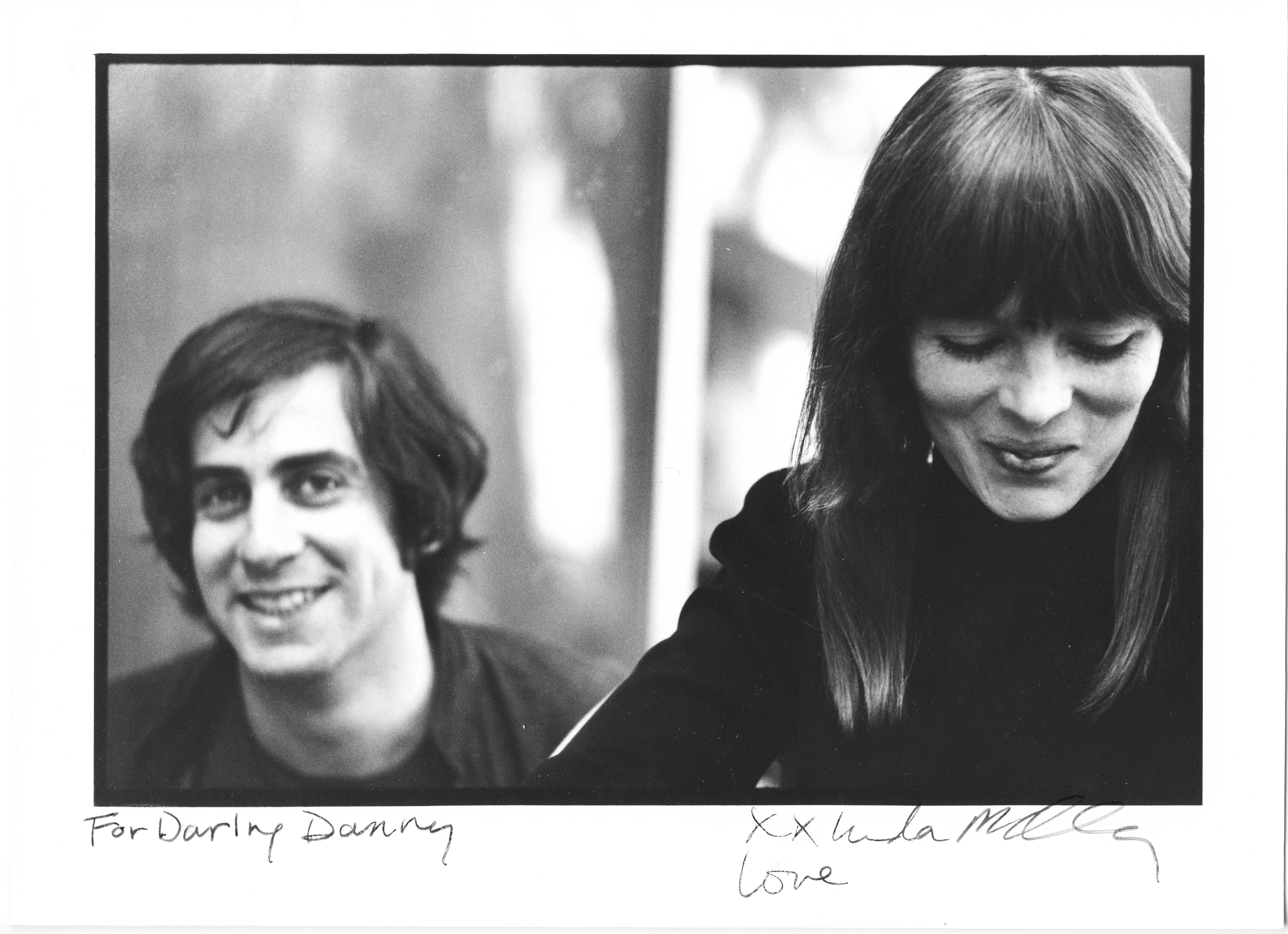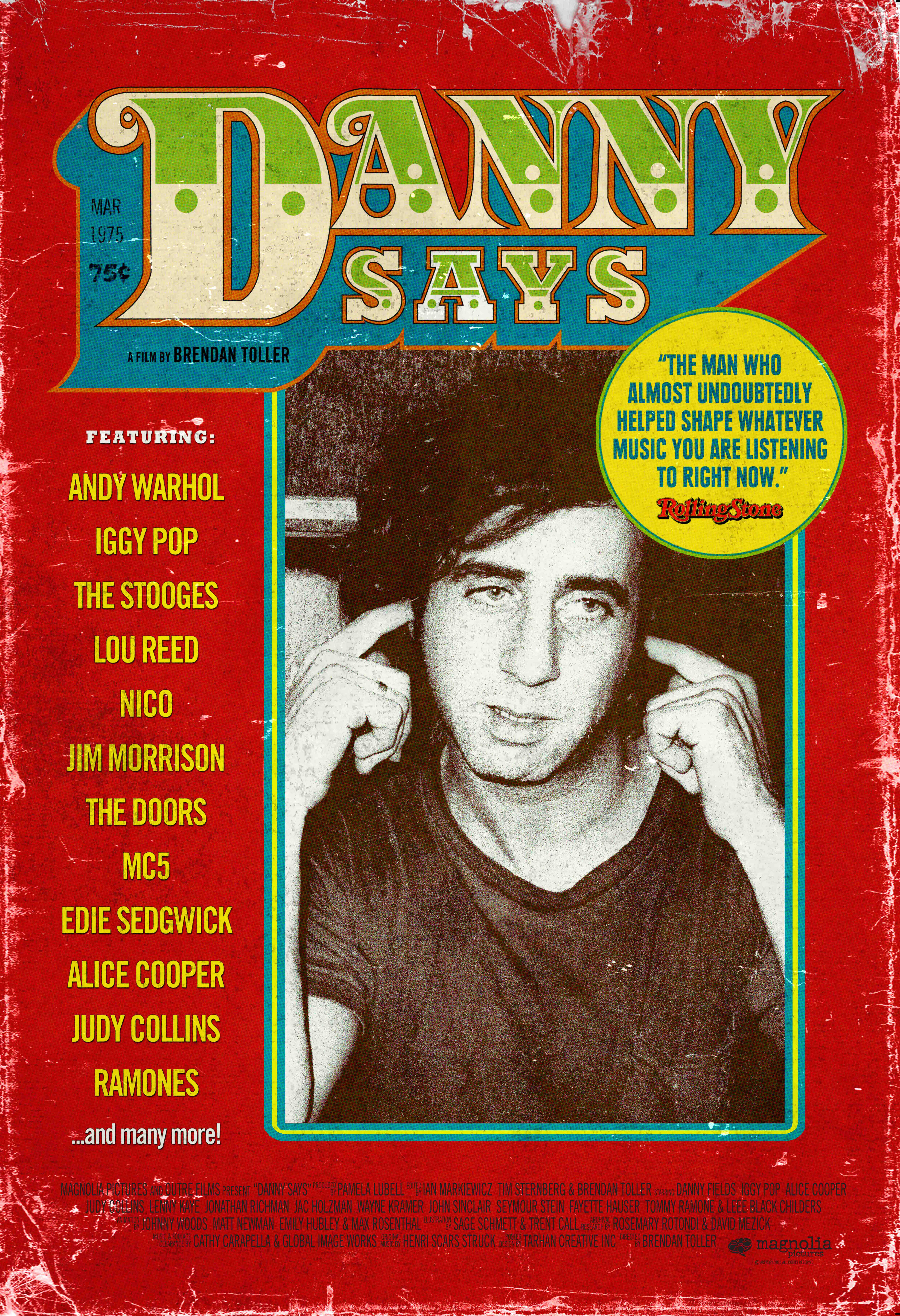DANNY SAYS
 Friday, September 30, 2016 at 10:28AM
Friday, September 30, 2016 at 10:28AM  A Magnolia Pictures release. Photo courtesy of Magnolia Pictures. Photo credit: © Arturo Vega/Danny Fields Archive.
A Magnolia Pictures release. Photo courtesy of Magnolia Pictures. Photo credit: © Arturo Vega/Danny Fields Archive.
CASTLES IN THE SAND
As popular music grew from a tail of culture to the dog itself, tales of giants emerged. The giants had atuned ears and, more significantly, money and access to the means of production. When they liked what they heard, the world heard it. Jim Stewart and Estelle Aston, Dave Bartholomew, Ahmet Ertegun, Jerry Wexler, John Hammond and Berry Gordy, Jr., among others, had money and studios and systems of distribution.
What did Danny Fields have?
Danny Fields had an unerring instinct for the real. Passion recognized passion. Fuck accessibility. Fuck expertise. Fuck good manners. Danny sought blood and soul. If it moved him, Danny wanted to the world to hear it, no matter what. And Danny was never wrong. He never got rich, but he never signed Aerosmith, either. Steven Tyler wore his ornate stage jacket to a post-gig restaurant meeting. Danny took that as a rookie move and wanted nothing to do with Tyler or his band. Of course, the Ramones wore their stage jackets everywhere, but their jackets were cooler.
Danny spent his formative years becoming an aesthete. Then he became something more rare and valuable: the aesthete who takes action. Danny Fields did not build empires. He built sand castles. And every one collapsed, as sand castles do. But the reverberations of their collapsing changed, as Danny Says will tell you, everything. Of my all-time top four favorite bands, Danny Fields helped discover and promote two. Those two inspired at least 10,000 other bands. Apiece.
 Danny Fields, Iggy Pop, Lisa Robinson, and David Bowie; Photo courtesy of Magnolia Pictures. Photo credit: © Leee Black Childers/Danny Fields Archive.
Danny Fields, Iggy Pop, Lisa Robinson, and David Bowie; Photo courtesy of Magnolia Pictures. Photo credit: © Leee Black Childers/Danny Fields Archive.
Danny Fields snakes like a main cable through the 15 richest, most influential years in white American rock. Every band that seemed too weird, driven and intelligent to even exist – never mind make it; that time proved was decades ahead of its time; there’s Danny, fighting to get them on the radio. And every one of those bands today exerts the influence Danny always knew they would.
Danny Says is a rambunctious, low-budget, loving, companionable ode. Danny Fields deserves the reverent five-star HBO treatment. But a rambling, affectionate, awe-struck tone better suits the subject. The film consists of Danny telling stories and musical interludes. Other people, like Iggy, tell stories, too. Their stories are nowhere near as much fun as Danny’s. Nobody’s stories are as much fun as Danny’s.
Danny a freshman at Penn at 15; Danny at 19 learning how cool functions from Warhol and the Factory gang. Danny introducing Jim Morrison to Nico. Danny signing the MC5 and Iggy and the Stooges with one phone call. Danny getting John Cale to produce the Stooges. Danny introducing Iggy to David Bowie. Danny declining to throw away his life to save Iggy. Danny seeing one Ramones gig and instantly becoming their manager. Danny bringing the Ramones to England and inspiring another 10,000 bands. Danny on Robert Mapplethorpe: “Everybody fucked Bobby!” Danny putting heartthrob shots of the Ramones next to David Cassidy in teen magazines.
Danny laughing and smiling, Danny rueful, Danny unpretentious and heartfelt; the coolest guy in any room who long ago dropped any pretense of cool. You know that stupid question: What historical figure would you most like to have dinner with? Now you know.
 Danny Fields and Nico; Photo credit: © Linda Eastman/Danny Fields Archive.Director Brendan Toller regards Danny with amazement and delight. Danny Says is inspiring and insanely fun. You can’t wait to hear what’s coming around the corner – the next story, the next deranged incident, the next band that never got over the hump and whose failure broke Danny’s heart. Again.
Danny Fields and Nico; Photo credit: © Linda Eastman/Danny Fields Archive.Director Brendan Toller regards Danny with amazement and delight. Danny Says is inspiring and insanely fun. You can’t wait to hear what’s coming around the corner – the next story, the next deranged incident, the next band that never got over the hump and whose failure broke Danny’s heart. Again.
The limited budget sometimes intrudes. Animation takes over when there’s no archival footage, like when Morrison met Nico and they stood silent, both staring at the same spot on the floor for an hour. The animation is crude, but sweet. There doesn’t seem enough money to buy performance rights; scenes and even still photos repeat. Most regrettably, the brief film of the MC5 makes them looks like clowns. Neither what we do see nor brief contemporary interviews give even a hint of their earthshaking blast. Toller wastes time on wanker John Sinclair, former MC5 manager and founder of the ridiculous White Panther Party. To this party, Sinclair brings nothing, but he’s the only guest who does.
Danny’s former boss at Electra Records comes off self-amused, sophisticated and living proof of how brilliant eccentrics thrive in the music biz. Nuggets compiler, author and Patti Smith guitarist Lenny Kaye describes discovering himself with Danny’s help. Iggy credits Danny for something similar. Danny discovered, against the odds, who he was supposed to be. From that he never wavered.
The final scene is almost unbearably poignant. Early in the film, Danny describes growing up brilliant and outcast on Long Island. He came to New York City, he said, seeking friends. Looking back on his life, he remarks on all the beautiful, smart, cool, insane people who became and remain his friends. “I never thought I’d have any friends,” Danny says.
https://www.youtube.com/watch?v=5Aerah72IEI
 Photo courtesy of Magnolia Pictures
Photo courtesy of Magnolia Pictures

